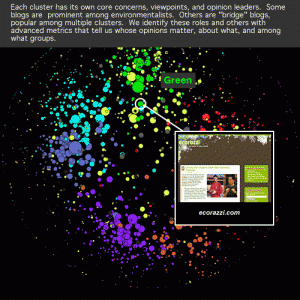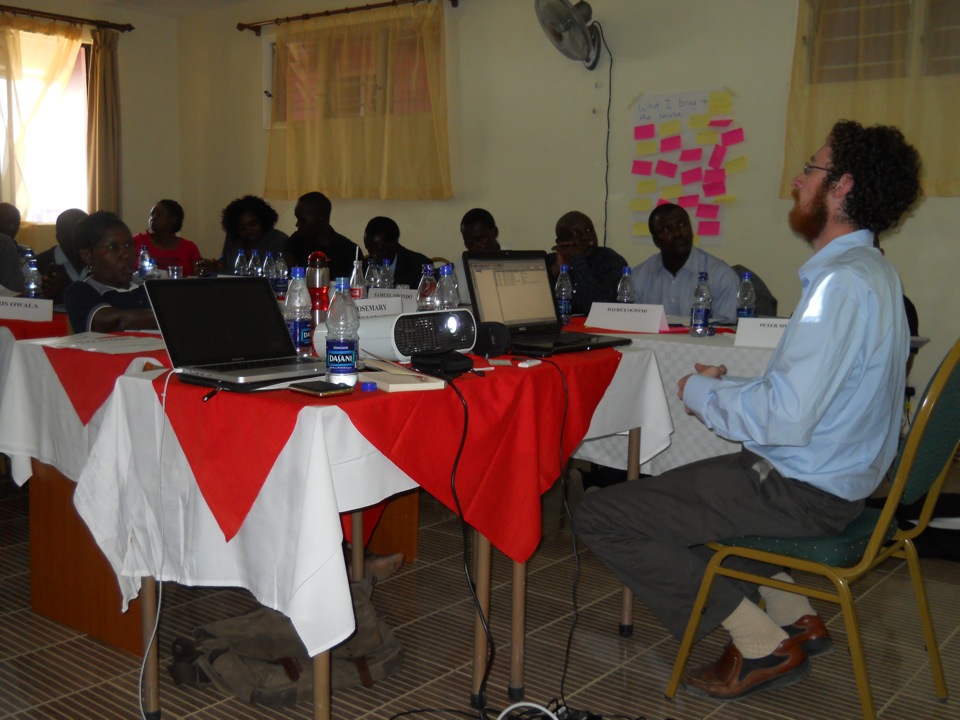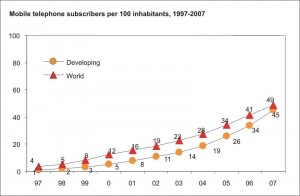Interested in learning about Mobile Phones for Public Health? Class starts on June 3! Apply Now.
Mobile devices are quickly becoming much more than just a means to make a voice call. Top of the line devices are now being tested for their ability to be the brains for satellites. But perhaps more important than their capabilities is that they are the most rapidly disseminating technology in human history. Soon only a tiny minority will lack an always on link to the network. What’s more astounding is that this graphic is five years old and currently there are 6 billion mobile phone subscriptions, though duplicates reduce the number of users.
This ubiquity is going to have an unparalleled impact on how just about every facet of social organization operates. The next generation is growing up with an intuitive grasp of making the most of their new technical assistants, and they will incorporate them into new workflows for organizations that are unthinkable at the moment.
The complement to price decreases that are resulting in such tremendous uptake is the exponential increase in capabilities in even the simplest devices. More and more devices are benefiting from applications that enable them to collect data, profit from information services designed to be accessed via SMS or WAP, and increasingly connect directly to the internet over wireless broadband networks. The addition of GPS radios and cameras drastically improves the ability to verify information collected with these devices.
Soon regardless of where in the world you are, you’ll only be a few miles–at the most!–from the nearest node of our globally connected culture.



